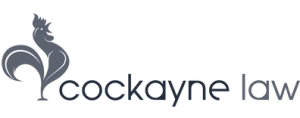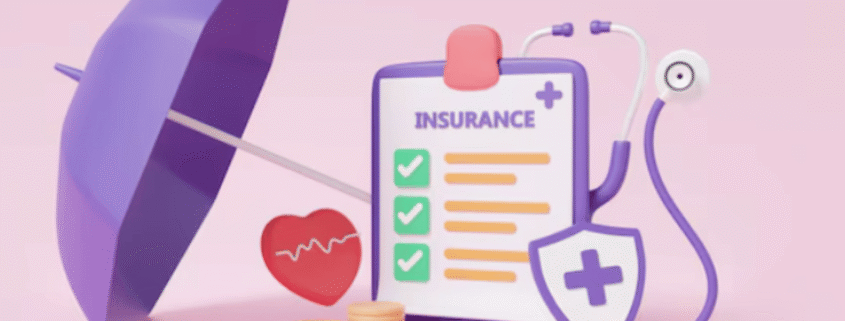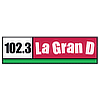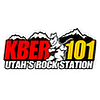How Car Insurance Pays Medical Bills After a Crash in Utah?
In Utah, Personal Injury Protection (PIP) pays the first $3,000 of accident-related medical care. After PIP, health insurance, optional MedPay, or the at-fault driver’s liability policy may cover the rest, but insurers can seek repayment from any recovery.
If you get hurt in a car crash, dealing with medical bills is one of the scariest parts. Utah insurers give you PIP, a short-term benefit that pays for immediate care so bills do not pile up while fault is decided. PIP is helpful, but it is limited.
After PIP runs out, your health insurance, optional MedPay, or the at-fault driver’s liability coverage usually takes over. That mix of coverages and possible repayment claims feels messy to most people.
This easy-to-read blog explains how money moves after a crash in Utah, what each type of coverage does, and the steps that protect your wallet and credit. I will also explain when a local lawyer helps, and what to do if bills keep arriving.
Read this like a short guide you could hand to a friend who just left the ER.
Key Points You Should Know
- Utah PIP pays the first $3,000.
- MedPay is optional and adds protection.
- Health insurance may cover remaining bills.
- Liens and subrogation can reduce recovery.
- Keep detailed medical bills and notes.
- Talk to a lawyer before settling.
How Personal Injury Protection works in Utah?
Utah requires PIP on most auto policies. PIP is paid no matter who caused the crash. That means it is your quick source of money for medical care, ambulance rides, and some wage loss.
The usual minimum PIP amount for Utah policies is $3,000. That payment gets you into treatment without waiting for an investigation. If your medical bills are under that small amount, PIP often clears them fast.
If bills are higher, PIP still helps at first, then other payers step in. PIP rules also spell out short term wage loss and household help benefits, though those are capped.
Read your insurance policy so you know the exact limits and time frames. When in doubt, ask a local insurance person or your attorney what your PIP covers and how to file a PIP claim.
Things PIP commonly pays for
- Ambulance and emergency care.
- Doctor visits and physical therapy.
- Short term lost income.
- Limited household help if needed.
MedPay and health insurance: what comes next?
After PIP, most people turn to their health insurance for ongoing care. Health plans will usually cover accident treatment if the services match the plan’s rules. If you do not have good health coverage, Medical Payments coverage, called MedPay, can help. MedPay is an optional insurance option in Utah, providing medical coverage for you and your passengers, regardless of fault.
MedPay is often quick and simple to use for co-pays, imaging, and short-term care. The important catch is this: if your health insurer or MedPay pays and you later get money from the at-fault driver, those payers may ask to be repaid from your settlement.
That repayment is called subrogation. Knowing your coverages and telling providers about each one keeps billing tidy and avoids surprise balances later.
When will the at-fault driver’s insurance be paid?
If your injuries cost more than the PIP and other immediate benefits, you can ask the at-fault driver’s liability insurer to pay medical bills and other losses. This is a third-party claim. You send them medical records, bills, and a statement of how the crash affected your life. Adjusters will value current and expected future care, then often try to settle. Take care with early offers.
Insurers like to close claims quickly for less money than future care will cost. If you accept a release, you normally give up the right to sue later. It is usually necessary to file a personal injury lawsuit within four years after the injury occurs in Utah. It is important to meet that deadline.
To protect yourself while negotiations are stalled, your lawyer can file a lawsuit. Keep treatment notes, receipts, and any job loss paperwork. Those documents show the real cost of the crash and make a settlement more fair.
Should you settle early?
If you are still treating, or if future surgeries are possible, do not sign a final release without real advice. Early money can look fine now and be inadequate later.
Liens, subrogation, and how repayment works
When insurers or medical providers pay your bills, they usually reserve the right to get repaid from any settlement you win. That is subrogation or a lien. For example, your health plan may pay for an MRI, then file a lien to recover what it paid if the at-fault driver’s insurer pays you later. Hospitals sometimes place liens too. This can make your settlement smaller than you expect.
A good attorney reviews all liens, negotiates reductions, and sets a payment plan so you do not lose most of your recovery to paybacks. Often lawyers can reduce the lien amount by arguing over what was reasonable, or by showing the insurer should take a fair share versus everything. Don’t ignore liens. If you do, collectors or providers could try to grab your settlement or sue to collect.
Practical steps to protect yourself after a crash
Start these steps right away. They keep bills from getting out of control and help your case if you need one.
- Get medical care and follow your doctor’s directions.
- Get in touch with your insurer as soon as possible.
- Keep all medical bills, receipts, and appointment notes.
- Let medical offices know if you have PIP, MedPay, or health insurance.
- Keep a simple log of pain, symptoms, and missed work days.
- Contracts should not be signed without consulting a lawyer.
Keeping notes of who you spoke to and when makes a big difference later. The faster you act, the easier it is to link each medical visit to the crash. That link is what insurers look for when they decide payment and value.
Hire a proven local injury lawyer who knows Utah (about Chris Cockayne and team)
A local lawyer helps you fight for fair payment and keeps bill collectors off your back. If you need someone in Utah, Chris Cockayne and the team at Cockayne Law handle car crash and injury cases across the state. They gather police reports, get medical records, and talk to insurers so you do not have to.
Local attorneys know Utah rules for PIP, typical lien practices, and how judges in local courts view similar claims. That experience helps them estimate value fairly, including future medical care you might need. A lawyer also negotiates liens and seeks to reduce repayment amounts when possible. If an insurer denies PIP or delays payment, a lawyer files appeals and, if needed, a lawsuit.
If you want help, ask for a free review and bring all medical bills and insurance letters. Mentioning a local firm like Cockayne Law is common on this page simply because families often look for a nearby team to handle calls and paperwork.
What to do if bills go to collections or you get sued?
If you have unpaid medical bills, act fast. Collections can harm your credit and cause stress. Start by getting copies of the bills and the insurance explanations of benefits. Send the collector a short letter stating you are disputing the debt because the treatment is linked to an accident that is under insurer review. Often the collector pauses while you and the insurers sort payment. If you receive a lawsuit from a medical provider or collector, do not ignore it.
Responding on time protects your legal rights. Your lawyer can negotiate a hold or reduced payoff while the injury claim is pending. In many cases providers accept a smaller lump sum rather than waiting and risking court. Keep all mail, document calls, and forward any legal papers to your attorney right away. Quick action keeps your credit intact and helps you avoid unnecessary payments.
Final Thoughts
Medical bills after a crash in Utah are rarely simple. Your PIP benefits give you fast help, but they are small. After that, health insurance, optional MedPay, and the at-fault driver’s insurer step in, and each has rules about repayment.
The hard part is balancing quick care with protecting your right to full payment for future needs. Simple acts help a lot: get treated early, keep every bill and note, and tell insurers about each source of coverage. If bills pile up or an insurer denies benefits, call a local personal injury lawyer in Utah to protect your claim and manage liens.
A lawyer can make sure the settlement covers future care and that repayments are fair. If you want one local contact, the team at Cockayne Law can review your situation and explain options without pressure. There is no need for you to handle this alone.
FAQs
Who pays my medical bills right after a Utah crash?
Your own PIP pays initial medical bills up to the policy limit, usually the $3,000 minimum. After that, health insurance or MedPay may cover more while you pursue a claim against the at-fault driver.
How much is Utah PIP worth?
State law sets a typical minimum of $3,000 for PIP on most car policies. You may buy higher PIP limits for more protection. Check your policy for exact numbers.
What is MedPay and do I need it?
MedPay is optional coverage that pays medical bills regardless of fault. It helps pay deductibles, co-pays, or bills while liability is sorted. It is useful if your health coverage is limited.
Will my health insurer get repaid from my settlement?
Often yes. Health insurers commonly have subrogation rights and may seek repayment from any recovery you get from the at-fault party. Your lawyer can try to reduce that repayment.
Can I negotiate a hospital lien?
Yes. Lawyers often negotiate liens down. Providers may accept less than billed if they get paid faster or if the settlement amount is limited. Do not ignore liens.
What if an insurer denies my PIP claim?
If PIP is denied, you can appeal or sue for benefits in many cases. A lawyer can handle the appeal and show why the care was related to the crash.
Where can I find help in Utah?
Look for a nearby personal injury lawyer in Utah with car crash experience. A local lawyer knows PIP rules, lien practice, and how to talk to local providers and insurers. Cockayne Law is one example that offers free reviews.









